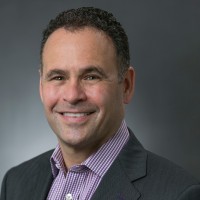EPISODE #1072
Life Insurance as an Asset Class with Eric Geier
We talked about life insurance as an asset class, the tax benefits and positive attributes of the product, the drawbacks or negative aspects, and how to think about it in terms of time horizon!
Listen to us On
About the Episode
LifeBlood: We talked about life insurance as an asset class, the tax benefits and positive attributes of the product, the drawbacks or negative aspects, and how to think about it in terms of time horizon with Eric Geier, CEO of Puresurance. Listen to learn if life insurance could be a good savings vehicle for you!
For the Difference Making Tip, scan ahead to 18:44!
You can learn more about Eric at Puresurance.com, Facebook and LinkedIn.

George Grombacher
Lifeblood Host

Eric Geier
Guest
More Episodes
How to Make Change Happen in Your Financial Life in 11 Steps
If you’re wondering how to make change happen in your financial life, you’re in good company. Americans are behind with our personal finances, and to get on the right track, we need to change our behaviors. We need to learn many of life’s lessons through...
How to Create a Monthly Cash Flow Plan
Having a monthly cash flow plan is essential for your long-term financial success. Without understanding how much money you have coming in, and how much is going out, you won’t be successful. When it comes to personal cash flow, Earnings - Spending = Savings. When we...
The Importance of Accountability in Personal Finance
What is the importance of accountability with your money? Since money plays a vital role in every aspect of our lives, accountability is critical. We must hold ourselves, our loved ones, and our partners accountable. Another important consideration is the time...
DIY Money: How to Make it Happen on Your Own
Can you successfully navigate your own personal finances? Can you DIY money? Yes. Financial planning is determining your financial goals, looking at your current situation, and devising strategies for achieving those goals. It’s best viewed as a process because...
How to Be Good at Financial Decision Making
We all want to know how to be good at financial decision making. And it’s easy, but it’s not simple. It’s impossible for anyone to eliminate all bad decisions. What we want to do is minimize how many we make. The wrong financial decision can delay our most...
Set It and Forget It: How to Automate Your Finances
Is it possible to “set it and forget it” with our personal finances? Our time and attention are just as valuable as our money. When we can stop doing menial tasks like paying bills and balancing our checkbooks, we can spend our time and attention on other...
Having a Financial Conversation With Our Senior Loved Ones
Having the money talk with aging loved ones is important. We’re all going to get there eventually, the lucky ones, that is. Old age. And we’ll see that first in our parents if we’re lucky enough to keep them with us that long. Because with age comes a decreased...
What Gets Measured, Gets Managed: How to Create Financial Systems
In personal finance as well as corporate, what gets measured, gets managed. CFOs handle the finances of their organizations, and there are many stakeholders who rely on their data and insight. They look back at historical results, as well as plan and forecast...
How to Set and Keep Your Financial Priorities
Because money plays such an important role in our lives, we must establish clear financial priorities. While money won’t bring us happiness, a lack of money can most certainly bring stress and anxiety. It’s also really hard to think about the big picture and to...
Join the show.
Interested in being on the show? Tell me a little bit more about you and what you’d like to talk about!














